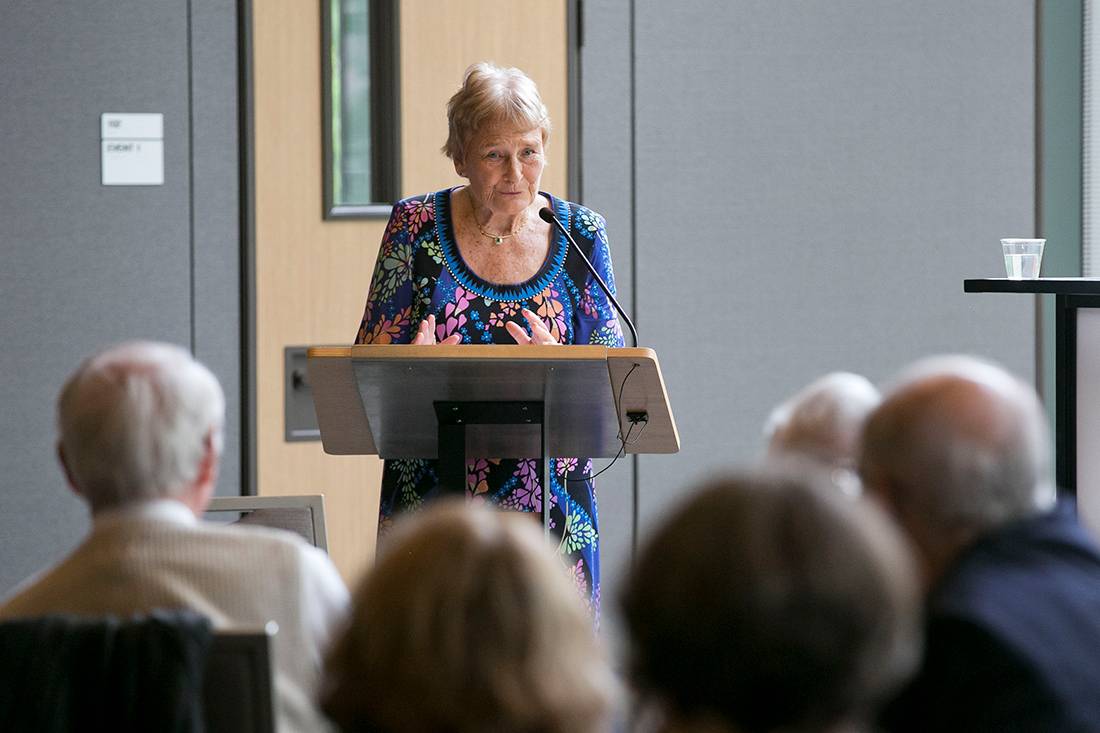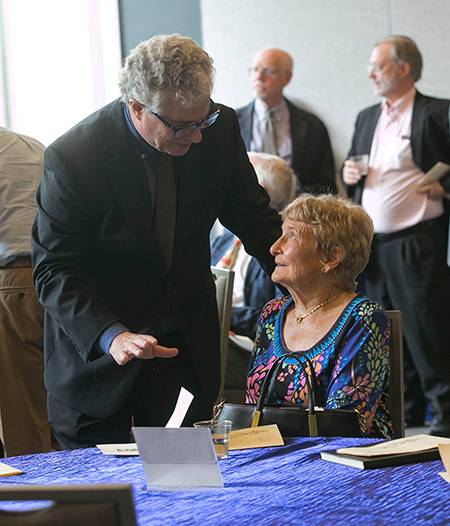Remembering Ronald Witt: A Scholar 'Larger Than Life'

From charming angry Italian villagers armed with rifles during his honeymoon to encouraging a future Duke colleague at a decisive point in his career, Ronald Witt was remembered Friday as an inspiring and colorful scholar, teacher, colleague and friend.
“He was a great scholar because he was a great man,” said John Martin, chair of the Duke Department of History. Martin said Witt was “larger than life, impossible to capture in a few comments here,” but that didn’t stop Martin and others from trying.
Martin and other speakers shared stories about Witt before more than 100 people in Penn Pavilion during a memorial service honoring the long-time Duke history professor who died March 15 at age 84. (Read more in this New York Times obituary.)
As a scholar, Martin said, Witt’s research reshaped academic ideas about the Renaissance and Italian humanism through books such as “In the Footsteps of the Ancients,” which received the Gordan Prize from the Renaissance Society of America and shared the American Philosophical Society’s Jacques Barzun Prize in Cultural History.
“‘Surely you know Ron Witt,’ is a line I’ve heard so many times in libraries and archives throughout Italy,” Martin said.
 At Duke, Witt was a major figure in a group of medieval scholars from history, Romance studies, philosophy and other departments that made the university a leading center for the study of the period.
At Duke, Witt was a major figure in a group of medieval scholars from history, Romance studies, philosophy and other departments that made the university a leading center for the study of the period.
William Chafe, another long-time history department colleague, remembered Witt’s inclination to wear socks of different colors. “Every moment with him was full of surprise, wisdom and joy,” Chafe said. He added that Witt was successful in his scholarship and as a teacher because “he was fascinated by the nuances of history, the small stories that illuminated the large themes.”
A series of former students, both graduate and undergraduate, praised Witt for his mentorship and imaginative teaching approach.
Most of all, the speakers shared stories of his kindness and good nature, his willingness to help others even at his own expense. His wife, Mary Ann Witt, herself a French and Italian languages and literatures teacher at N.C. State University, said her husband always found pleasure in his academic work.
“He never really considered being a professor to be a real job,” Mary Ann Witt said.
She told a story from her honeymoon when hiking in the hills of Italy they encountered a camp of suspicious villagers who threatened to shoot the couple. Witt eased their concerns by making up a story that they were going to a nearby shrine where they would pray to the Madonna so they could produce a child. The villagers let them spend the night and continue on their way the next morning.